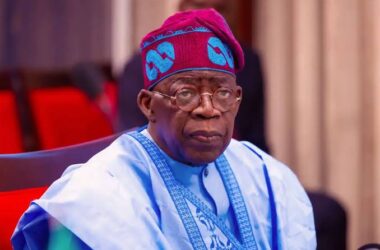The Federal Government of Nigeria is set to reduce diesel costs by more than 60%, following the successful retrofitting of train locomotives to run on a dual-fuel system. This major milestone aims to lower transportation costs and encourage cleaner energy use within the country’s rail system.
In a statement issued on Friday, the Minister of Transportation, Said Alkali, expressed satisfaction with the results of the recent test run. He highlighted that the initiative is a key step in reducing the overall cost of rail transportation, which will benefit passengers by making train fares more affordable.
“This achievement is a step towards reducing transportation costs and making train fares more affordable for the general public,” the minister said.
During the demonstration at the Amina J. Mohammed Train Station, also known as Idu Train Station, in Abuja, Alkali oversaw the test run of the retrofitted locomotive along the Abuja-Kaduna rail corridor. This initiative involved modifying the trains to run on a combination of Liquefied Natural Gas (LNG) and diesel, significantly cutting down the amount of diesel needed for operations.
The locomotives, which now operate on a 70% LNG and 30% diesel fuel mix, mark a new phase for Nigeria’s transportation system. The conversion reduces fuel costs and moves the country closer to its goal of promoting cleaner energy sources. Before the upgrade, the locomotives ran exclusively on diesel. With the new system in place, LNG has become the primary fuel, while diesel is now used in smaller quantities.
However, Alkali noted that it is not yet possible for the locomotives to run entirely on LNG due to the technical limitations of their engines. “It is not technically possible to convert it to run 100% on LNG,” he explained.
The minister also shared the government’s intention to extend this retrofitting project to other rail lines across the country. He mentioned that the necessary regulatory reviews would be conducted before seeking approval from the Federal Executive Council for nationwide implementation.
“We will now write to the Infrastructure Concession Regulatory Commission to allow them to assess the submission. This will enable the ministry to approach the Federal Executive Council for approval,” he added.
Samuel Uko, Managing Director of De-Sadel Consortium, also lauded the achievement, pointing out that this is the first locomotive in Africa to operate with LNG.
“Without the proactiveness of the ministry and the minister, this would never have been possible,” Uko said.










